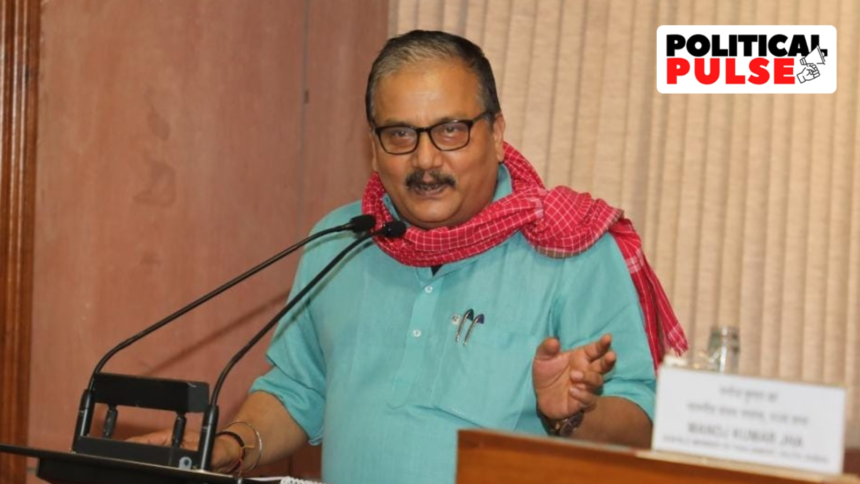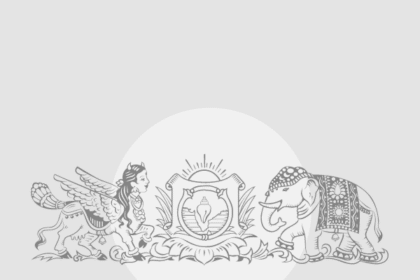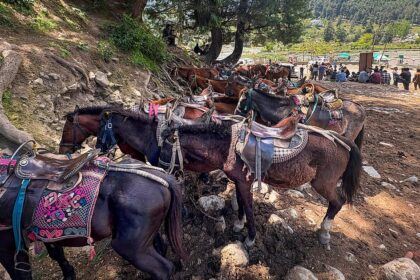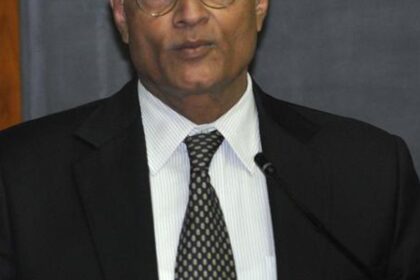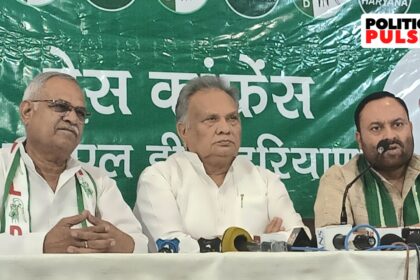The RJD and other opposition parties claim the Narendra Modi government’s caste census announcement is a vindication of their long-standing demand. The RJD, in particular, highlights Bihar’s efforts in conducting a caste survey and releasing its findings in October 2023, when the RJD was part of the state government.
RJD MP Manoj Kumar Jha discusses the challenges the survey faced in Bihar, the BJP’s stance over the years, and the road ahead for the Opposition in raising the issue. Excerpts:
What are the political implications of the Centre’s announcement of a caste census in the next Census?
Jha: There is a term called ‘marriage of contradiction.’ This decision (on caste census) is that. The fact of the matter is that this political party (the BJP) was always posturing against the idea of caste-based enumeration. They have used derogatory language for it, including the honourable Prime Minister… They ridiculed Lalu ji, Tejashwi ji, Mulayam Singh ji, Sharad Yadav ji. They said that we will divide the country… The fact of the matter is that you need caste-based scientific data in order to address the anomalies in your development plan… of Sabka Saath, Sabka Vikas… That favourite slogan of the PM is in fact hollow unless you have the (caste) data.
What were the challenges the Bihar government faced in its caste survey?
Jha: The honourable PM and his party were not in favour of it (the caste survey in Bihar). They tried all kinds of sabotage techniques to halt it. However, the Bihar government conducted the survey through its own resources.
The data that was collected showed the dark reality of millions of lives. On the basis of it, certain programmes were envisaged. However, those programmes could not be realised on the ground because suddenly (Bihar CM) Nitish Kumar turned the other way (left the RJD and joined hands with the BJP). But the quantum of reservation was enhanced.
We requested the PM to put that (the implementation of the survey) in Schedule 9 (a Constitutional mandate that makes any law immune to scrutiny by courts). This was not done. Subsequently, we had to move the Supreme Court because the High Court had halted that process of 75% reservation (in the wake of the caste survey). That tells you that this journey had acquired a national stature.
Telangana recently did it (a caste survey), which Mr Rahul Gandhi is talking about. So, this collective voice of the subalterns — the Bahujans — was instrumental in making a party agree (to a caste census)… This is a party (the BJP) that has always been opposed to even caste-based reservation, forget enumeration.
What is the road ahead for the Opposition on the issue?
Jha: Why is the media looking at a reluctant government’s agreement to a caste census as the destination? It is the beginning of the journey. We (the Opposition) will be on alert mode. We will see how it is being conducted… We will not allow any kind of mess in the process. Once the data is available, then the real story begins… (which is) looking for greater representation and programmes to minimise income inequality…. and the private sector also agreeing and reflecting it in its programmes and hiring policy.
Will the caste census announcement have any impact on the forthcoming Bihar polls?
Jha: The idea (of a caste census) was of Bahujan politicians like Lalu ji, Mulayam ji, Sharad Yadav ji. Later on, it was taken up by Tejashwi Yadav, Rahul Gandhi and Akhilesh Yadav… There is a Bahujan wave in Indian politics. This ownership cannot be robbed by anyone. I hope the government does not have Bihar elections in mind.
How do you view Rahul Gandhi’s remarks about the Telangana caste survey?
Jha: I do not agree (with Gandhi). I have seen the Bihar survey results. He (Gandhi) could have (made those comments) because it is his government (in Telangana) and he was instrumental in making it happen. But Tejashwi Yadav personally monitored the survey (in Bihar) and it is as scientific and valuable as what Mr Gandhi thinks the survey in Telangana is… These are just talking points in the media. On the ground, it has no traction. The only thing that will matter on the ground is how the data for the caste survey is collected and how we go from there.
How were OBCs enumerated in the Bihar caste survey, since they are categorised differently across states?
Jha: There is a general understanding and the base is the Mandal Commission report. When someone refers to a sub-caste, you have to look at it anthropologically as to which caste the sub-caste belongs to. Generally, people refer to their sub-castes but that has to be located among the major castes. This applies to OBCs as well as Extremely Backward Classes (EBCs) and also to the Upper Castes. When someone says their caste is Paswan, (for example), then it will be counted in SCs like other sub-castes like Ravidas, Pasi and others.
Should the Centre collect caste data and consolidate or separate the state and central OBC lists?
Jha: Ideally, it should be merged. But we must understand that a large majority of the population lives in states. The Centre is an administrative entity, while the habitat entity is states. It has to be a meticulous exercise. In the case of the 2011 Census, they say the data got corrupted… I am saying there should be a greater understanding of anthropological concerns about castes and sub-castes.
Was the Bihar caste survey conducted as a single bloc for general category castes?
Jha: It was done separately. If someone said they were Brahmin, one category was general and another more specific one where the person was specified as Brahmin. The same was done for other categories.
Reference : https://indianexpress.com/article/political-pulse/rjd-manoj-jha-caste-census-bihar-modi-9977341/


